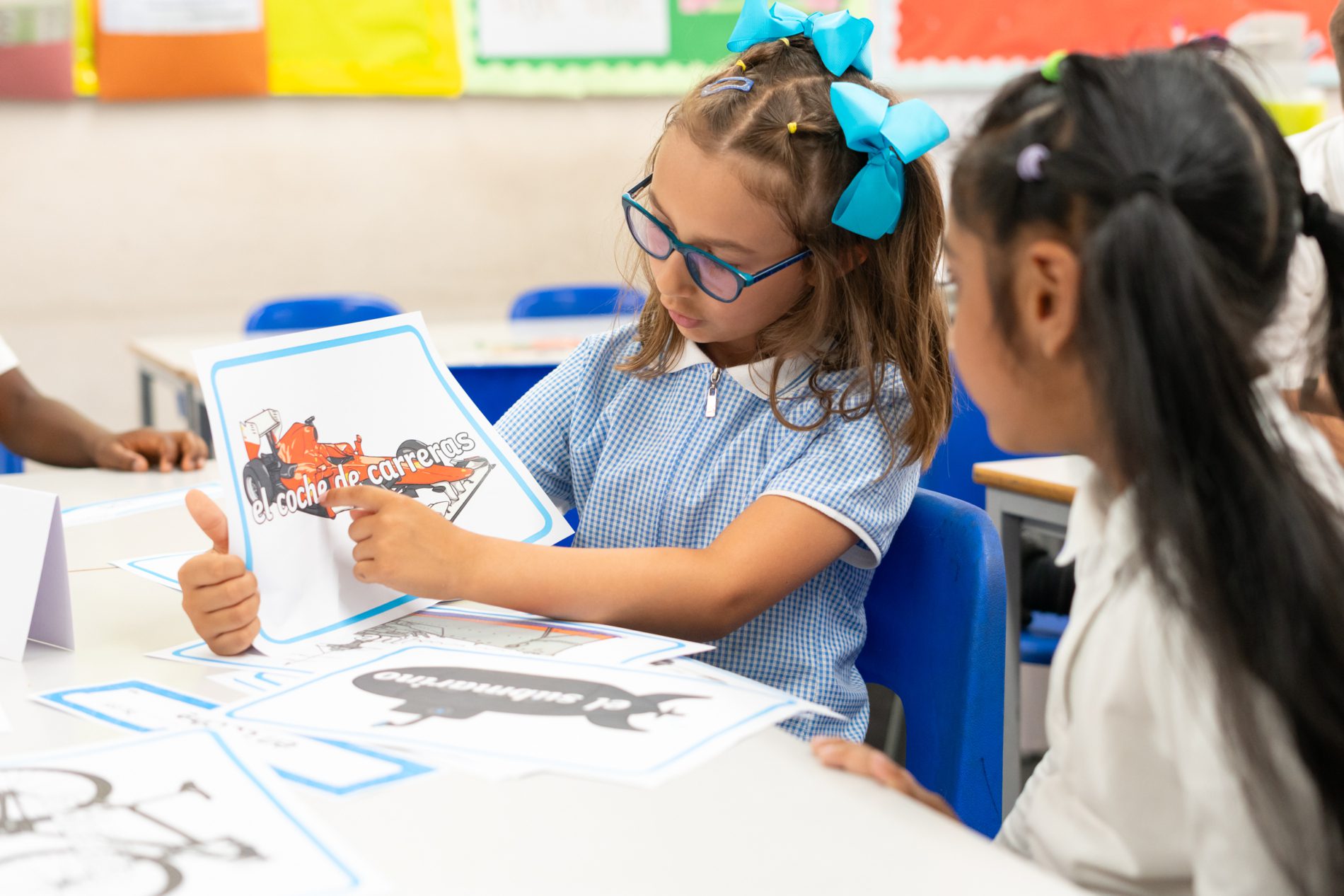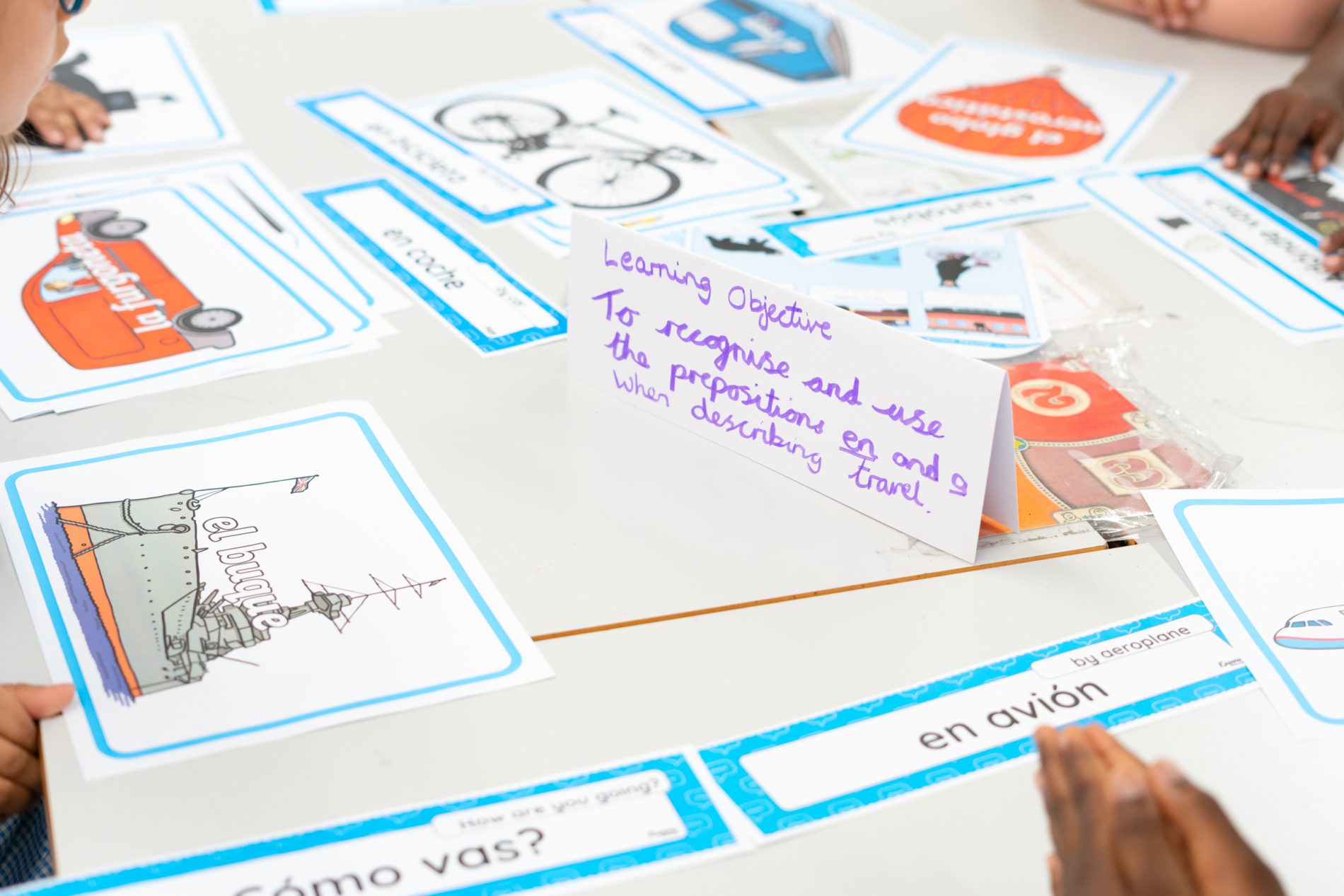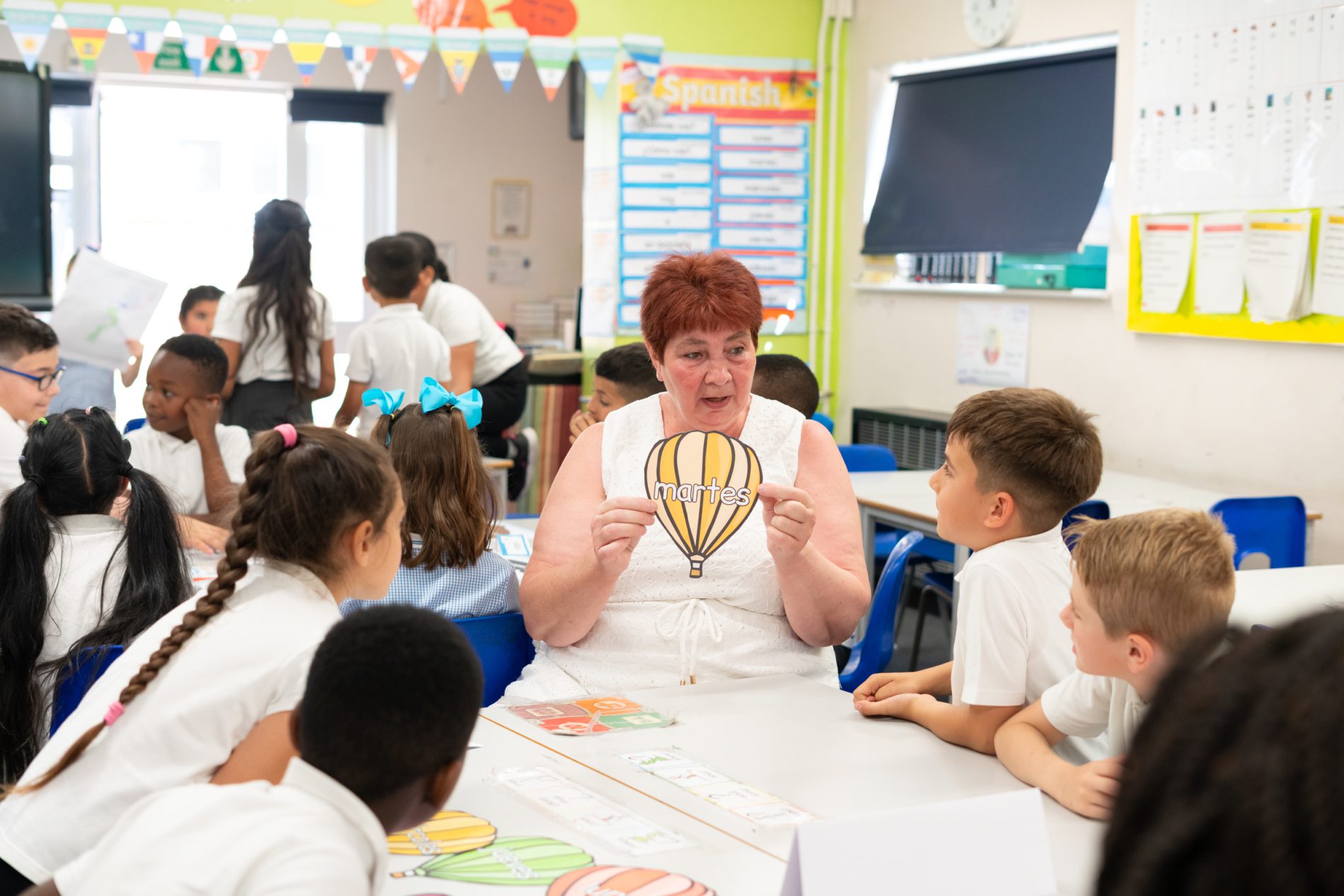Modern Foreign Language Subject Leader: Miss C Lockey
We chose the Spanish language as our modern foreign language because it is the third most spoken language in the world after Chinese and English. It’s also the native language of more than 400 million people across 44 countries, which makes it one of the most useful languages to know.
A high-quality Spanish education should engage and inspire pupils to develop a love of language, and so increase their self-confidence and sense of achievement. Children find Spanish lessons captivating and interactive, and they enjoy orally reciting their learning. Learning Spanish also inspires the children to learn about another country and their culture as well as how to respect individual differences. Finally, this learning enables students to communicate with others across the globe.
For any more information on Holy Trinity’s MFL Curriculum, please contact the office.
Intent
At Holy Trinity, we encourage our pupils to celebrate our diversity as they learn to respect and become aware of similarities and differences between cultures and languages. Our Spanish curriculum will create opportunities which will inspire in pupils a curiosity and fascination about language that will remain with them for the rest of their lives. All pupils will show enthusiasm for and develop a love of learning a new language.
We believe that our Spanish curriculum will enable pupils to flourish as they learn new life skills. We will reiterate the important positive gains from learning a language such as the ability to communicate internationally and understand more about these communities in the wider world. Our pupils leave Holy Trinity with a strong sense of respect and love for the world in which they live.
Holy Trinity is committed to ensuring our pupils develop into active, independent learners, accessing a curriculum that enthuses, engages, and builds on skills and knowledge. Throughout their Spanish learning, pupils will feel empowered and encouraged to have a voice. Our pupils will embed skills as they learn at a suitable pace in a caring and supportive environment. Opportunities are given to our pupils throughout the year to shine as beacons of light as they share their new language skills with their peers in school as well as with families at home.
In line with the 2014 National Curriculum, our aim is to provide a high-quality language education which equips children to use aspects of the Spanish language confidently and be inspired to engage with languages enthusiastically when leaving for secondary education. Children will leave Holy Trinity being able to understand and feel confident to communicate in Spanish to prepare them for their next step in education.


Implementation
At Holy Trinity, we pride ourselves on creating positive attitudes towards Spanish language learning. Our pupils understand the positive attributes of learning a language and how this could help them to communicate wider in the world. Our pupils enjoy interactive, fast-paced and engaging lessons which allow them to practise speaking, listening and writing Spanish terms.
Spanish language learning begins in Key Stage 2 and progresses each year as the child develops through the school. As a school, we follow the Twinkl scheme of work where topics have been carefully selected to allow our pupils to experience and practise a range of vocabulary and topics which encourage them to explore and respect the Spanish culture too. Through careful planning, we have ensured each programme of study from the National Curriculum is taught in every year group to guarantee repetition and mastery. Each year we build on pupils’ learning from previous years to progress knowledge and understanding this enables our pupils to become more proficient in each programme of study from the National Curriculum.
Our lessons are created to encourage all our pupils to listen to Spanish phrases and make links between Spanish phrases and English phrases to help them to be able to do this. Furthermore, pupils practise speaking Spanish in a relaxed and inviting way. Our pupils are taught about the grammar and pronunciation rules of Spanish phrases to help them to develop their speaking skills. Finally, children are expected to practise writing the Spanish phrase they have learnt. The children are curious and entertained by writing in Spanish and enjoy this distinctive challenge.
Impact
Pupils enjoy Spanish lessons and show great enthusiasm for learning the language and learning about Spanish culture. Our children show pride in their additional language and are confident language users. Learning another language gives the children a new perspective on the world, encouraging them to understand their own cultures and languages along with the culture and languages of others.
By the time they leave Holy Trinity, pupils have developed the necessary transferable skills for language learning at Key Stage 3. They have a curiosity and desire to experience other countries and communities, realising that in a multi-lingual society, it is an extremely valuable and much sought-after skill to be able to speak a different language.

Modern Foreign Language in Each Stage
Children learn greetings, family names, numbers up to 20, their age, playground games and colours. They also learn how to sing songs in Spanish and how to act out stories. By the end of their first-year children will be able to have a simple conversation in Spanish and understand basic instructions and greetings.
Children practise their Spanish in role-play conversations and learn how to talk about travel, holidays, transport, weather, toys, likes and dislikes, food and drink, animals and their habitats, colours and how to read a simple Spanish story. They also learn about Intercultural Understanding and Knowledge about languages and where Spanish is spoken around the world.
- listen attentively to spoken language and show understanding by joining in and giving simple responses
- explore the patterns and sounds of language through songs and rhymes and link the spelling, sound and meaning of words
- engage in conversations; ask and answer questions and express opinions
- speak in sentences, using familiar vocabulary and phrases
- begin to develop accurate pronunciation and intonation so that others understand when they are reading aloud or using familiar words and phrases
- repeat new ideas orally to peers
- read carefully and show understanding of words and phrases, using a word bank for support
- appreciate stories, songs, poems and rhymes in the language
- broaden their vocabulary and develop their ability to understand new words that are introduced into familiar written material
- write phrases from memory to express ideas clearly
- describe people, places, things, and actions orally and in writing understand basic grammar appropriate to the language being studied, including (where relevant): feminine and masculine forms, key features, and patterns of the language; how to apply these, for instance, to build sentences; and how these differ from or are similar to English
Children learn how to say the alphabet in Spanish and how to spell their names when asked. They also learn the names of main body parts and revise colours before using this vocabulary to create and describe their own monsters. They learn how to talk about places in the locality, directions and their position by creating a large map game with instructions. Finally, children learn how to read and follow instructions about how to make a traditional Spanish recipe.
During the year we also try to plan for extra activities such as writing to a Spanish pupil, cooking and/or tasting Spanish food, learning about and experiencing Spanish art and researching famous landmarks.
- listen attentively to spoken language and show understanding by joining in and responding
- explore the patterns and sounds of language through songs and rhymes and link the spelling, sound and meaning of words
- engage in conversations; ask and answer questions; express opinions and respond to those of others; seek clarification and help
- speak in sentences, using familiar vocabulary, phrases and basic language structures
- develop accurate pronunciation, with confidence, so that others understand when they are reading aloud or using familiar words and phrases
- present ideas and information orally to a range of audiences
- read carefully and show understanding of words, phrases and simple writing
- appreciate stories, songs, poems and rhymes in the language
- broaden their vocabulary and develop their ability to understand new words that are introduced into familiar written material, including through using a dictionary
- write phrases from memory, and adapt these to create new sentences, to express ideas clearly
Modern Foreign Language Progression
At Holy Trinity, we develop our pupil’s MFL understanding through essential skills; growing their depth of knowledge year after year.
SEND Information
We aspire to ensure that SEND and disadvantaged children are given the necessary support in class to fully access the learning of Spanish and embrace the culture in Spanish-speaking countries.
Modern Foreign Language Extra Resources
Fun Spanish Games

